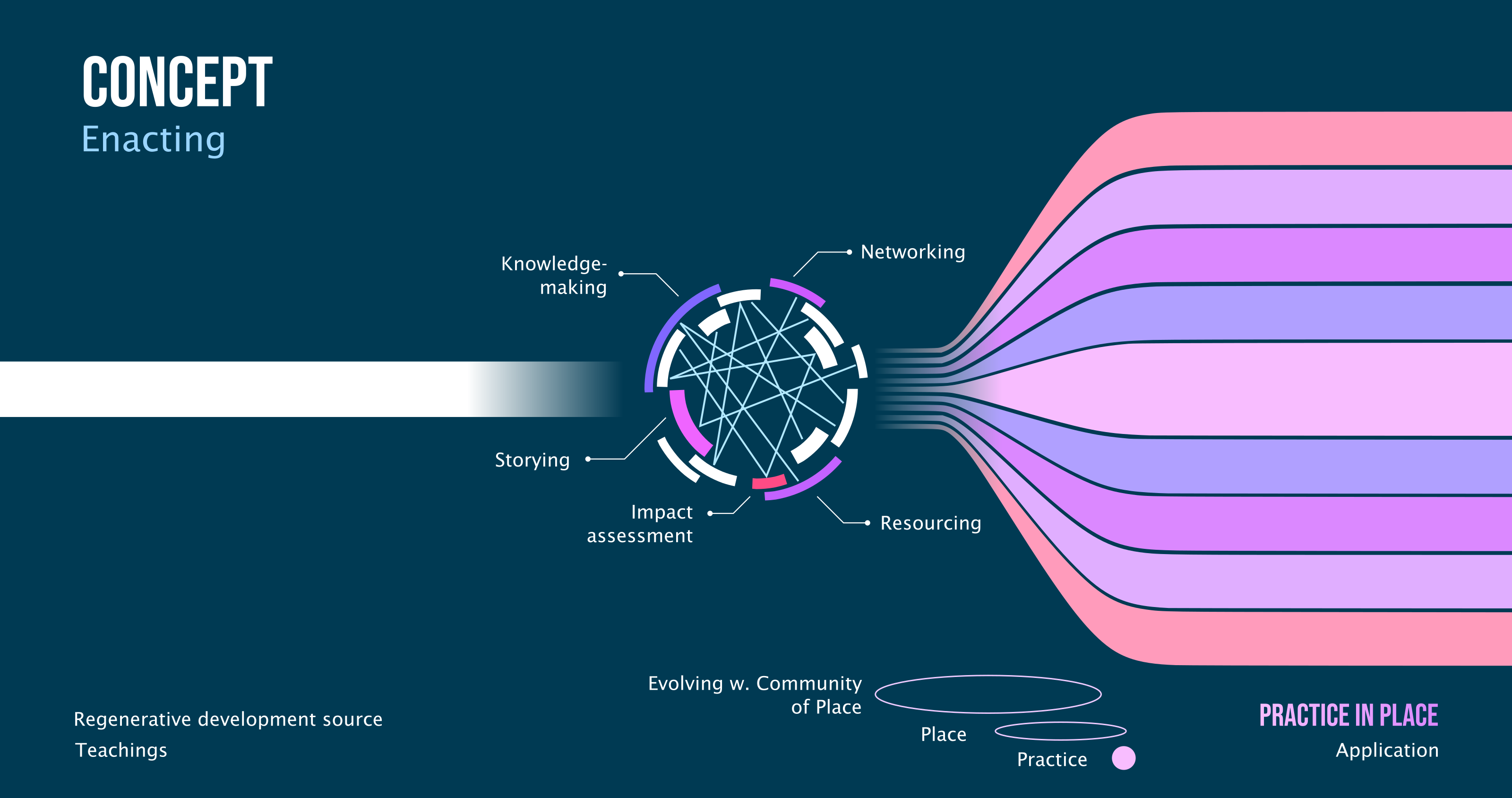The term enactment refers to the active, lived processes through which systems, knowledge, and ways of organizing emerge. Rooted in embodied cognition and systems thinking, enactment emphasizes that systems are brought into being through interaction—they don't pre-exist as static entities but arise through the collective practices of their participants. This idea is inspired by theorists like Evan Thompson, Francisco Varela, and the principle of autopoiesis, which highlights the self-organizing and self-sustaining nature of living systems.

In our methodology, enactment describes how new social structures—such as governance models or economic systems—are co-created by the actions, relationships, and innovations of participants in collaborative spaces. For example, the civic infrastructures we help develop are not imposed from the outside but are enacted through self-organizing practices, such as experimenting with governance frameworks like sociocracy or developing Web3-based currencies. These new systems emerge dynamically, shaped by the interactions and feedback loops among participants, aligning with the broader principles of living systems.
By focusing on enactment, we emphasize the role of practice-based approaches in systems change, where the collective engagement of people co-creates the conditions for new societal infrastructures to emerge. Through this lens, evaluation becomes essential to make sense of the value generated by these processes, balancing innovation with reflection.
Questions and Reflections Raised by Enactment¶
- How are we creating the system as we engage with it?
- Enactment challenges participants and facilitators to reflect on how their practices are actively shaping the system they are part of. It invites awareness of the participatory and relational nature of systems change.
- How do we cultivate the conditions for the emergence of new systems?
- Enactment requires creating an environment where new practices can be safely explored, embodied, and iterated upon. What are the practices, tools, and relationships that foster this kind of innovation?
- How do we balance enactment with reflection and evaluation?
- While enactment involves activating new ways of being, evaluation (particularly developmental evaluation) ensures that we are learning from the process and understanding the value of what is emerging. How can we create feedback loops that allow for both action and sense-making?